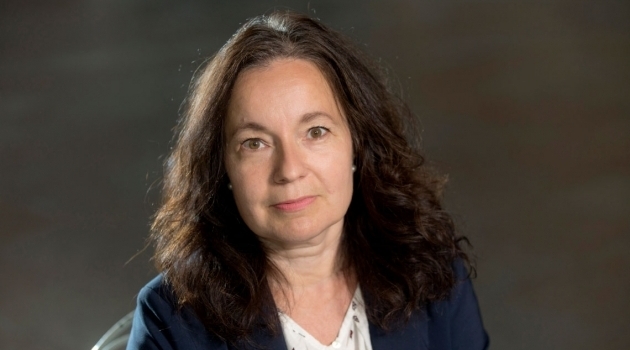Shirin Ahlbäck Öberg appointed to the Coronavirus Commission
Hi, Shirin Ahlbäck Öberg, associate professor and senior lecturer at the Department of Political Science, will participate in the Government’s commission evaluating the measures taken to limit the spread of COVID-19. What are your thoughts on the work that you and the others on the commission have before you?
“This feels like a very important assignment. Our mission is to independently determine what actually has happened (and what has not happened) and then to evaluate this in light of what we know today. To this end, a central task is to produce data on how the coronavirus epidemic has been handled in Sweden. Ultimately, the commission’s work is about learning how to handle future societal crises as well as possible.”
Can you already say something about how you will tackle your assignment?
“In addition to the expertise of the commission’s members, we will also need to consult with both Swedish and foreign experts. The task before us is extensive. We plan to utilise research from several disciplines and collect information from the societal functions that have been particularly burdened during the pandemic at both the central and local levels. The commission has a secretariat with about 5 staff members, which will collect the data the commission requests, contribute with its expertise, and produce written material.”
Can you mention some of the questions you feel the commission should prioritise finding answers to?
“At this initial stage, I am not prepared to make a list of priorities. But I can point out that the Government’s directive lists about 70 questions that it wants answers to, and it will be a challenge to answer them all.”
Has there been enough time for a fair investigation to be possible?
“It depends on what questions you are looking at. If you are interested in a conclusive answer of what strategy works best, then it is too early. But many of the questions specified in the directive are about things that we can actually evaluate by February 2022. For example, whether the organisation and way of working of Swedish societal institutions are appropriate for times of crisis?”
What do you think it will be like to evaluate something that everyone is impacted by and that most people have strong opinions about?
“That the debate is polarised does not scare me at all. I’m taking this on with an open mind and with a genuine interest in assessing and reassessing our societal functions’ organisation and ways of working in the type of crisis we are currently in. The commission has a unique opportunity to seek real answers with new and comprehensive data to questions that are, in many cases, discussed using anecdotal evidence in the general debate.”
How does this type of investigation differ from research within academia?
“Many of us on the commissions are active researchers, and we will not work differently than what we are accustomed to as researchers. One difference now is that we aren’t the ones formulating the research questions. Instead, the Government has formulated (many) of the questions in consultation with the opposition parties. But how these questions are to be studied and what conclusions are to be drawn are fully the responsibility of the commission. In these crucial aspects, we are independent.”
What will your role be? In what ways do you feel you will be able to contribute?
“I will be involved in initiating studies that will help us answer central questions related to how society is organised. I hope to contribute with my expertise on the Swedish administrative model, the relationship between the state and municipalities, what frameworks our current form of government place on crisis management, and insights into the conditions created by the most recent decades’ ideas on governance for publicly financed local activities.
Tove Hellkvist
Facts: The Coronavirus Commission
The mission of the Coronavirus Commission is to evaluate the measures taken by the Government, relevant administrative agencies, regions, and municipalities to limit the spread of the virus that causes the illness COVID-19 and the impact of its spread. The commission will also conduct an international comparison with relevant countries of the different measures taken and their effects. The commission will present its results by 28 February 2022.

